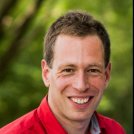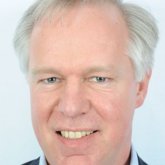Gallium Nitride: covering the entire chain from device modelling and characterisation, MMIC design up to phased-array implementations (3 vacancies)
With its partners, the University of Twente founded POLARIS, a programme running under the Dutch National Growth Fund (NGF). It realises breakthroughs in the creation and manufacturing of complex micro-electronic Radio Frequency (RF) systems that enable The Netherlands to extend its leading position, both in a technological as well as an economic sense.
The programme focuses on medical, defence and communication applications.
One of the many activities in the POLARIS programme addresses research on GaN Microwave Monolithic Integrated Circuits (MMICs); research on this will be performed in close co-operation between the University of Twente and TNO.
You will be investigating the design of GaN HEMT MMICs in one of three positions.
Depending on your background, the work will 1) focus on the interaction between microwave design and measurement methods, looking deep into the technological capabilities of GaN, or 2) focus on new methods of integrating microwave components mapping design techniques from other technologies onto GaN technology, or 3) focus on novel methods for robust very high power amplifiers.
You will have a lot of interaction with your supervisors, but you can work independently, investigating GaN design and pushing the state-of-the-art.
Information and application
Are you interested in this position? Please send your application via the 'Apply now' button below on 29 September 2025 at the latest, and include:
- A cover letter (maximum 2 pages A4), emphasizing your specific interest, qualifications and motivations to apply for this position.
- A curriculum vitae, including a list of all courses attended and grades obtained, and, if applicable, a list of publications and references.
Screening is part of the selection procedure.
For more information regarding this position, you are welcome to contact Mark Oude Alink, m.s.oudealink@utwente.nl
About the department
As a PhD-student, you will be embedded in the Integrated Circuit Design (ICD) group headed by prof. Bram Nauta. The group's motto is “fundamental solutions for practical problems” and under this vision, it has contributed many fundamental new ideas in IC design. The ICD group has made high-impact inventions in analog filters, thermal noise cancelling amplifiers, ultra-low power analog to digital converters, software-defined radio, mixer-first receivers, N-path filters and sub-sampling phase locked loops. The group is a world leader and initiator of many new research directions which also find their application in industrial products. The group has a strong collaboration with the global semiconductor industry. See this link (https://utwentecareers.nl/en/stories-from-ut-employees/interviews/maryam-dodangeh/) for a personal experience of a former PhD-student.
You will be closely collaborating with, and often visiting, one of the foremost GaN R&D groups in the world, part of TNO in The Hague. This group is the leading group on phased-array technology, now already for more than 30 years. For phased-array microwave power generation, beamforming systems and transceiver technology in wider sense, this is the place to be.
Your job will be part of the POLARIS programme, that ensures tight connections with industries in the supply chain and end manufacturers, guaranteeing relevant research in a mixed industrial and academic environment.
About the organisation
The faculty of Electrical Engineering, Mathematics and Computer Science (EEMCS) uses mathematics, electronics and computer technology to contribute to the development of Information and Communication Technology (ICT). With ICT present in almost every device and product we use nowadays, we embrace our role as contributors to a broad range of societal activities and as pioneers of tomorrow's digital society. As part of a tech university that aims to shape society, individuals and connections, our faculty works together intensively with industrial partners and researchers in the Netherlands and abroad, and conducts extensive research for external commissioning parties and funders. Our research has a high profile both in the Netherlands and internationally. It has been accommodated in three multidisciplinary UT research institutes: Mesa+ Institute, TechMed Centre and Digital Society Institute.




